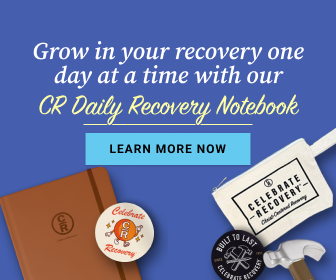Celebrate Recovery
7 Features That Make Celebrate Recovery Uniquely Impactful

I believe great churches are built by broken people, ministering to other broken people.
Brokenness is a willingness to abandon our pride, our pretensions, and our self-righteous posturing. And it is the prerequisite to God’s blessing on our lives and our congregations.
Jesus said, “Blessed are the poor in spirit, for theirs is the kingdom of heaven” (Matthew 5:3 NIV).
When we reach the end of our rope and give up our self-sufficiency, that’s when God moves into our lives with healing and growth.
Sin is addicting, and “all have sinned.” That means we’ve all created ungodly and unhealthy methods for handling life, so every church needs to have some form of a recovery ministry.
Not one of us is untainted, and because of sin, we’ve all hurt ourselves, we’ve all hurt other people, and others have hurt us. Each of us needs repentance and recovery in order to live our lives the way God intended.
At Saddleback, we’ve watched the miracle of Celebrate Recovery develop and expand to reach most of the nations of the world in the last few decades. It has touched hundreds of thousands of lives and continues to expand.
I believe the success of Celebrate Recovery has a lot to do with the fact that it’s grounded in a Christlike approach to ministering to the broken. Here are seven features that make it uniquely impactful.
1. Celebrate Recovery is based on God’s Word.
When Jesus taught the Sermon on the Mount, he began by stating “Eight Ways to Be Happy.” Today we call them the Beatitudes.
From a conventional viewpoint, his statements didn’t make a lot of sense. They sounded like contradictions. But once you fully understand what Jesus was saying, you realize these eight principles are God’s road to recovery, wholeness, growth, and spiritual maturity.
2. Celebrate Recovery is forward-looking.
Rather than wallowing in the past, or dredging up and rehearsing painful memories over and over, Celebrate Recovery focuses on the future. Regardless of what has already happened, the solution is to start making wise choices now and depend on Christ’s power to help you make those changes.
3. Celebrate Recovery emphasizes personal responsibility.
Instead of playing the “accuse and excuse” game of victimization, Celebrate Recovery helps people face up to their own poor choices and deal with what they can do something about. We cannot control all that happens to us, but we can control our responses. That is a secret of happiness!
When we stop wasting time fixing blame, we have more energy to fix the problem. When we stop hiding our own faults and stop hurling accusations at others, then the healing power of Christ can begin working in our minds, wills, and emotions.
4. Celebrate Recovery emphasizes spiritual commitment to Jesus Christ.
The third “step” of CR calls for people to make a total surrender of their lives to Christ. Lasting recovery cannot happen without this step. Everybody needs Jesus.
Celebrate Recovery is thoroughly evangelistic in nature. The first time I took our entire church through this program, over 500 people prayed to receive Christ on a single weekend. It was an amazing spiritual harvest. During the 10-week sermon series we used to kick off this program, our attendance grew by over 1,500 people. Don’t be surprised if this program becomes the most effective outreach ministry in your church.
Today, nearly 75 percent of the people who’ve been through Celebrate Recovery have come from outside our church. Changed lives always attract others who want to be changed.
5. Celebrate Recovery is built on the biblical principles of real community.
It is fellowship-focused, not individual-focused. We grow and get better together. It’s built around small group interaction and the support of a caring community.
There are many therapies, counseling, and growth programs today that are built around one-on-one interaction. But we don’t get well by ourselves. We need each other. Fellowship and accountability are two important components of spiritual growth.
6. Celebrate Recovery addresses all types of habits, hurts, and hang-ups.
Some recovery programs deal only with alcohol or drugs or another single problem. But Celebrate Recovery is a “large umbrella” program under which a limitless number of issues can be addressed. We have dozens of other specialized groups. For instance, we have groups for eating disorders, smoking addiction, sexual addictions, physical abuse, a veterans group for those dealing with post-traumatic stress, and all sorts of relational problems.
7. Celebrate Recovery moves members into ministry.
Because Celebrate Recovery is church-based, it produces a continuous stream of people moving into ministry after they’ve found recovery in Christ. This is because the final step of recovery is to help others. You’re not recovered until you’ve stopped focusing on yourself and moved into Christlike servanthood.
The size of your church is no barrier to beginning a Celebrate Recovery ministry. We’ve helped hundreds, if not thousands, of small churches begin Celebrate Recovery. You can start it with just one small group of people and watch it grow by word-of-mouth. But you won’t be able to keep it a secret for long!
You’re going to see lives changed in dramatic ways, and people can’t help but talk about what Jesus and the fellowship of other believers has done for them. You’ll see hopeless marriages restored and people set free from all kinds of sinful habits, hang-ups, and hurts as they practice the Lordship of Jesus and live out the Beatitudes.















